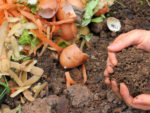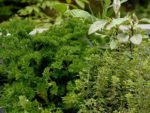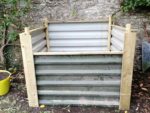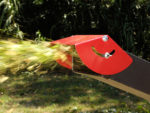This section is all about many of the essential gardening projects that you do need to carry out in the garden. We have separate sections to help with garden features , such as pergolas and ponds. Paths and garden steps are also covered in a separate section, as are Lawns and Hedges.
Here we focus on the sorts of gardening projects that almost every garden will need as some point or other, but doesn’t naturally fit into any other category.
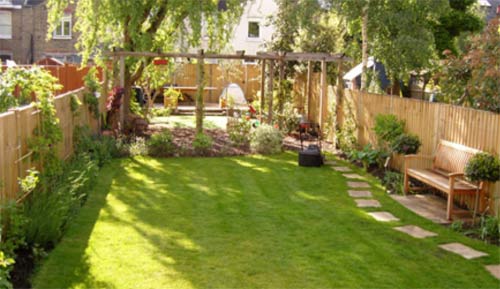
The 4 Absolute Essential Gardening Tips
Over and above these specific essential gardening projects, here are our key tips to keeping on top of your garden all year round:
Keep on Top of it
It doesn’t take much to keep a garden look nice to the untrained eye. There are a couple of simple things that make all the difference so that you can stop, put your feet up and enjoy the garden. Obviously you will have to do more at some point but at least you will have enjoyed the garden in the meantime and won’t be resenting the work you have to put in!
Here are some of the best gardening short cuts stay on top of your garden:
- Mow the Lawn: Just by mowing the lawn a scruffy, unkempt garden immediately looks much better and you can start to use it and enjoy it
- Weeding: This can be a big job, but if you get round in spring before things really start to grow and before the weeds have established themselves, then you will be one step ahead of them
- Trim the Hedges: This, like the lawn, can really making a garden look tidy and cared for without a huge amount of effort. This is a great autumn job, as you can cut back the years growth and it will keep looking good well into the next growing season
- Wood Treatment: There are likely to be areas of decking, or other wooden features. You should look after these because they will make the garden look great, but also because they are generally easier to maintain than they are to repair and replace
- Garden Style: If you know you are going to struggle to keep up with the gardening, then you should develop your garden into a less formal, cottage style where you can get away with doing less. Selecting the right plants is key
- Weeds running away? If you can’t keep up with the weeds, one easy way to deal with them it to cut off the tops to prevent them from seeding! Also for the plants you want to keep, a little bit of Dead Heading can make a garden look better, and is great for the plants, encouraging more flowering

The Royal Horticultural Society have a great article on low maintenance gardening which is worth a read if you are pressed for time to get into the garden.
Using the Right Gardening Tools
Like all forms of DIY, if you have the right tools then the project is always much easier. Gardening is no different!
There are a huge range of tools that you will find for all sorts of gardening job, but there are a few essential tools that you should consider:
- Gloves – A good sturdy pair is essential as it protects you hands from dirt and thorns so you can just get on with the project
- Trowel, Fork and Hoe – you will need these as there are times when you have to get ‘struck in’ but consider a long handled version which saves bending down all the time. You’ll have less control, but you can save time and bending down all the time
- Lawn Mower – There are a great range of mowers. If you have a smaller area to mow an electric mower is just fine, but bigger gardens will probably need a petrol version. Remember the wider the mower the more it will cover in one pass!
- Secateurs and Loppers – These are vital tools for keeping any garden in check. This is all the you need in most gardens, but the addition of a good pruning saw and some hedge clippers and they you cover pretty much every eventuality
- Kneeler and Waste Bag – sometimes you have to get down and dirty, then why not do it in comfort. Get a good waste bag to put the weeds, clippings, etc in. Plastic sacks that many councils issue for recycling are perfect!
- Rake and Barrow – Finally it is really helpful to have a good rake to rake things up. Consider a leaf rake as well as a normal garden rake as they are very useful in autumn

Tool Maintenance
Looking after you tools is particularly important for gardeners as unlike a lot of other DIY it is very seasonal by its very nature. This means that some tools are put away and not used for some time, months in many cases.
Here are our top Tool maintenance suggestions:
- Petrol goes stale after a couple of months and can cause the plugs to coke up, so it is worth using all the fuel or draining it before you bed down you mower, strimmer, etc for winter.
- Sharpening is time well spent. It’s easy to over look but sharpening the blades of you cutting tools, mowers, hedge trimmers, etc, will make the job quicker and easier. You only need to do this once a year, more if possible and necessary, but once will show a marked improvement
- Oil against rust. Most quality tools are stainless steel but it will not hurt to give them a drop of oil. Standard thee-in-one will work fine and repel moisture. If there are any working parts, such is in secateurs and loppers, this will help the movement too
- Follow specific maintenance instructions as they might surprise you. It is worth caring for your power tools and store them as the manufacture recommends, particularly the battery. Strimmer line can be stored in water to keep it supple, for example
- When you are putting the tools away for a period, this might be a great time to reorganise the storage. Finally get the shed organised?!
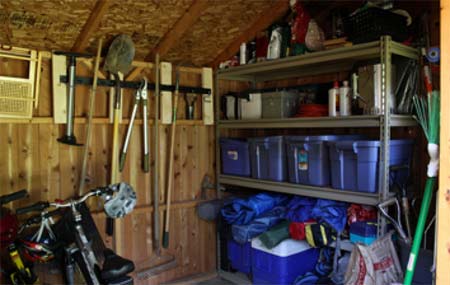
Focus on the Soil
Everything that grows in your garden comes from the soil. Make this as good as you can get it and your garden with thrive. There are a lot of things that you can do that will really help, but here are some of the most effective:
- Fertilise – obvious but vital. Use organic fertilisers or manure where you can get it as this will be the best way to improve the soil
- Worms are your friend – Encourage worms as they are a great sign that the soil is good. They do a huge amount to improve the soil. Mulch really encourages worms
- Compost – use your own garden waste to make compost and then this will improve your soil
- Think about moisture – soil can either be too free draining or boggy. You can improve and alter the drainage so that you soil retains the right amount of moisture
- Test – There’s a cost, but if you want to know what your soil is like, get it tested. This will guide you to what you can add to make it better
There you have it – the essential gardening tips and essential gardening projects. There is now nothing stopping you making your garden the most amazing space in your home.

